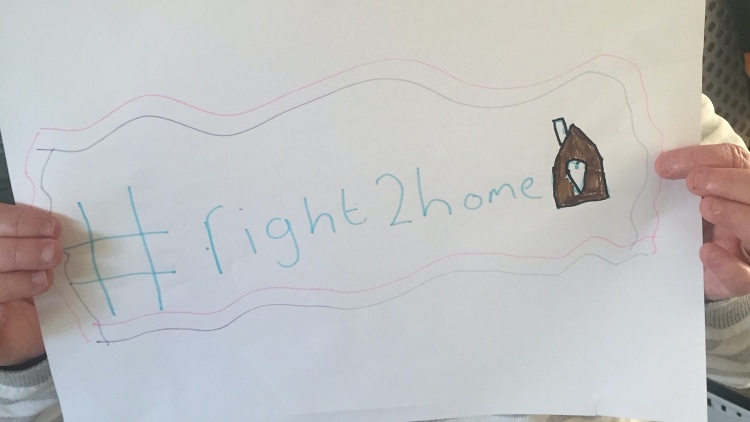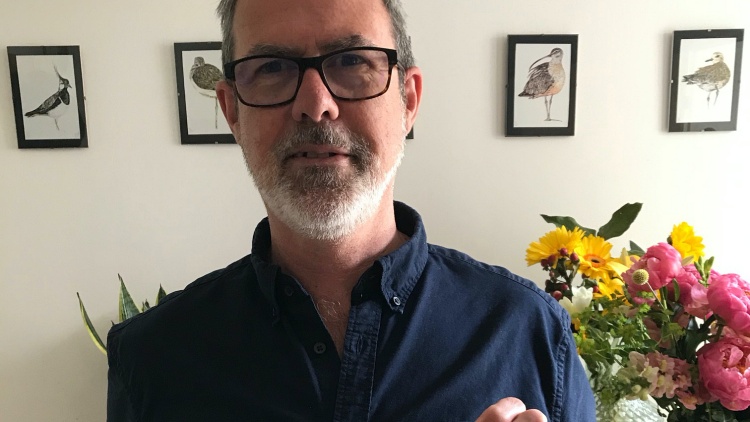
A mother whose son was the victim of abuse after being placed in a mental health treatment unit has joined a Lewisham charity in a national campaign calling for the end of unnecessary institutionalisation.
Isabelle Garnett, from Lambeth whose son has learning disabilities and autism, said the fears she felt for his safety after he was placed in a secure treatment unit for 18 months in 2015 meant that she was fully supporting the Right 2 Home campaign alongside charity Lewisham Speaking Up.
The charity act as advocates for people with learning disabilities and autism, with the aim of ending unnecessary institutionalisation.
She said: “We really feared for his life in there. He lost a huge amount of weight and we later found out that he was missing two meals a day. He just wasn’t being fed.”
Garnett said that her son was over-prescribed anti-psychotic medication which he does not need, was routinely subjected to prone restraints by six adults, was often banned from going outside and on one visit she paid him, he even had excrement in his shoes and was wearing clothes that did not belong to him.
Garnett joins the Lewisham charity who are based at The Albany in Deptford in the week-long national movement that is urging the Government and NHS to direct funding away from mental health institutions and instead focus on providing quality support for people in care homes and in their own abodes.
The campaign, which is designed by self-advocates with learning disabilities and/or autism operates on the Right 2 Home website and Twitter page.
Everyday this week people from across the country are posting videos and photos online, highlighting issues about the institutionalisation of people with learning disabilities and what they need to be done about it.
To raise awareness of the campaign, they are urging people to post a photo of themselves on social media holding a banner that reads “#right2home”.
Garnett added that the campaign is important because in her opinion, too many people are still being placed in treatment units unnecessarily.
She said: “Myself and other campaigners are not going away. We’re going to keep calling it out because this is one of the biggest domestic human rights scandals of our time. It’s continually batted away. Politicians talk about statistics and hitting targets, but these are human beings. These are human beings who have human rights just like anybody else. We must end this institutionalisation.”
The online movement will culminate today (May 22) with a meeting between NHS England and Lewisham Labour MP Vicky Foxcroft.
This meeting specifically falls in line with the first anniversary of the airing of a BBC Panorama documentary that exposed abuse of patients at a hospital for vulnerable adults in County Durham, called Whorlton Hall.
Marsh Stitchman, 56, Newham, who has worked as a self-advocacy coordinator at Lewisham Speaking Up for the past four years, said that he hopes the meeting will encourage authorities to remove those in secure units to a safe environment where they can receive the correct care.
He said: “These places actually do people damage. They come out worse than when they went in. People are traumatised… it just draws people into further crisis and feeling like they’re cut off from [others].”
Stitchman also said that he wants the meeting to force the Government into providing training in treatment units to people about their human rights, safeguarding and on how to recognise abuse.
He also said that the campaign is aimed at keeping the issues of mistreatment and abuse in these units high on the Government’s agenda, especially during the coronavirus pandemic as some campaigners are now concerned that lockdown has meant people in these units have been unable to see family and advocates.
He said: “We’re trying to follow a common story arc through the week by saying ‘why does this matter?’ because people’s rights are being abused and it’s not something that most people would expect to happen in 21st century Britain.
“People get sent away from home when really they could be supported locally and in a much nicer way.”

According to the Right 2 Home website, more than 2000 children and adults with learning disabilities and/or autism are currently in mental health units.
Scott Watkin, a representative body co-chair at Learning Disability England – one of the charities involved in the campaign – said: “Despite several scandals, including Whorlton Hall, people with a learning disability and autistic people are still not being treated equally. We should not be using assessment treatment units and private hospitals as people’s homes. Despite Government promises, far too many people are still being locked up simply because of their disability. Everyone has a #right2home and personalised support in the local community where they belong”.
Lewisham Councillor Jonathan Slater, Cabinet Member for the Community Sector said: “The council absolutely supports the right for non-institutional care and support wherever possible. However, we do know that at times, some institutional care is needed, but it should only be when it is the only reasonable and practical thing to do. We also support a Shared Lives scheme where people with a learning disability can live individually or as part of a family group.”
He also said that a new partnership between Lewisham Council’s Housing Team, Adult Social Care and NHS England would result in a new build scheme with six new flats being incorporated into a wider development of apartments in the borough to help people who have been identified as needing more support.
Garnett added that after a national campaign involving several MPs and a strong media presence, her son is now supported in a home that provides him with the correct type of care and that he has a voluntary job and rich family life.
She said: “He’s living proof that the right support works. What more proof do you need?”




